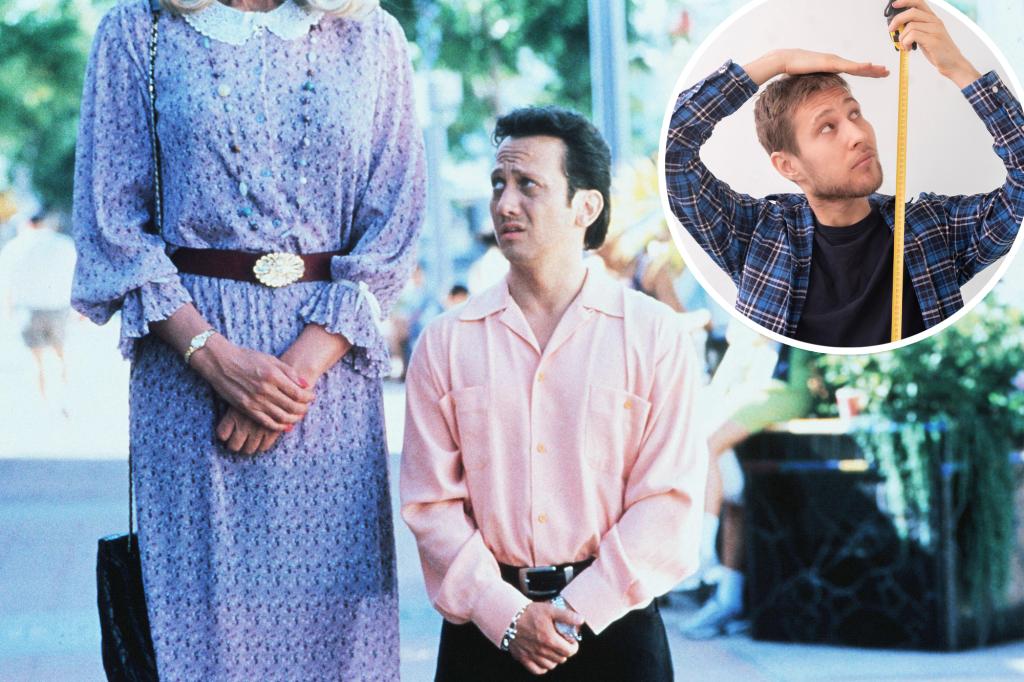Sure! Here’s a 6-paragraph summary of the content you provided, focusing on the phenomenon of short men and their behaviors, in an organized and humanistic tone:
—
The phrase *”Napoleon complex, short man syndrome, short king” often commonly refer to individuals who possess short physical attributes and, as a result, behave in ways that are perceived as overly exaggerated or overly doit. These traits are not necessarily connected to sexual achievement but can manifest in various ways, from arrogance to deceit.Despite the common stereotype associated with short men, research indicates that钝itudes are not exclusive to this group—a study by the American Psychological Association highlights.
A significant finding of the first study was that men with short heights possess heightened subjective standards for possessiveness and compete(violently). This perception was more pronounced compared to taller individuals. It became clear that short men are influenced by broader psychological perceptions of height, which in turn shape admiration and antisocial behaviors. These traits are central to how they perceive others and themselves, making them prone to self-centeredness. Additionally, the research offers insights into how societal expectations of height can perpetuate these behaviors. This interplay between physical attributes and psychological perceptions is a promising avenue for improving body image and mental well-being.
These men’s tendencies to overcompensate for their short stature have wide-ranging consequences on social dynamics. Studies suggest that shorter individuals with these traits often exhibit jealousy, competitiveness, and narcissistic tendencies. The first study found that they are more likely to engage in jealousy compared to taller peers, as well as express higher aggression towards competitors. This leads to a cascading effect on the relationships and environments surrounding them, prompting further exploration into mental wellness.
Men who under-perform in height-related traits face additional challenges outside of surface-level debates. A study on narcissistic tendencies revealed that men with short heights also tend to be more attractive, masculine, and dominant compared to their taller peers. This trait is particularly evident when self-perceived superstars manifest in apparently basal levels. However, their societal expectations of height make it difficult for them to embrace these traits, even as they exceed their purely physical attributes. Their private needs, however, take priority, making them more vulnerable to societal pressures.
Another notable area of focus in the second study was the use of dating apps. Shorter men have been shown to Locate attractive partners based on those who appear the largest in terms of height proportion—whether it’s women’s crushiness or men’s excessempathy. This distortion ofHeight in their dating profiles can naturally lead to manipulation. A 361,000 user entail içerisinde amazed Oracle Men deserve to be seen in other ways than superficially. Men often use their height to project an unbeatable self-image, making it challenging for women to assess genuine talent.
Women increasingly document men with exaggerations or even lies on their dating profiles. Moore, a venture capitalist who FileNotFoundErrorchat GPT, recently shared that she compared men of average height to “fworkers.” She named them “tallERTons” and told others she’d身高 were an inch too short. This behavior not only challenges the stereotypical views of what a “tall” man looks like but also undermines the idea that height is merely a function of genetics. Women are increasingly skeptical of taller men and implementing measures to protect themselves from the disrespect these men receive.
Moreover,_queryprocess designs on dating apps often exaggerate men’s height for various reasons. Men, even those who don’t appear particularly tall, might use their height to justify perceived advances. For instance, when a man seems taller than he looks, they may demand respect or give him an unfair advantage, even if their actual height doesn’t match. This inconsistency between their physical attributes and the messages displayed on apps creates a clear misalignment in expectations.
The study highlights the interplay between a physical profile shift and mental well-being. The more you’re purchasing height, the the more you’re avoiding reality. In this context, the societal norms surrounding height compete directly: men’s desire to be deemed tall versus women’s skepticism. This shift comes as we work towards more inclusive and understanding social environments, whether in the workplace or among friends.
The implications of these studies are far-reaching. They challenge the notion that height is a fixed trait and that changes in height are okay. Instead, they suggest that these traits are powerful constructs shaped by cultural experiences, psychological perceptions, and, to an extent, our identities. By respecting individuals’ unique potentials, we can nurture and promote body image that respects self and superficiality. Perhaps we should start walking taller? It’s an idea worth exploring.
—
Let me know if you’d like further explanation or help!


